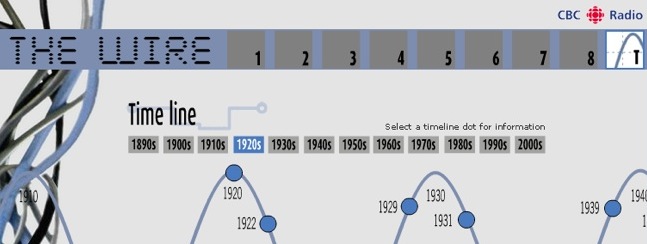Goethe said, “Architecture is frozen music.” I like that.
Of course, that was before audio recording, so now, for the most part, music is frozen music.
It’s only very recently in the history of music that we’ve been able to freeze music into an object. In my life, the form of this object mattered a lot. I once bought vinyl albums and cassette tapes, where there were two first songs per album, Side A and Side B. The energy of a first song makes it stand apart, at least in my head it does. Then the CD came along and eliminated Side B and there was only one first song and the actual number of a track (that you see prominently on the UI) became my index for sorting songs. Then MP3s jumbled my sense of track order and albums began to feel more like a loose grouping of individual pieces rather than a conceptual whole. I could name hundreds of more examples like these, and I welcome you to chime in, but my point is, the form of the thing matters.
But no effect has been as world-changing as that original innovation: freezing music in time onto a recording, where a single version of a song, a single performance of a song, became the song. An inherently mutable method of communication was fundamentally changed.
I heard a radio broadcast several years ago that really affected the way I thought about all this. Jim Derogatis and Greg Kot are the hosts of a radio program I’m a huge fan of called Sound Opinions (subscribe now). The songwriter, composer, and producer Jon Brion came to WBEZ in Chicago to talk to Sound Opinions in 2006. At the time, Brion has just co-produced Kanye West’s album “Late Registration” and he was also already a renowned film composer. In this interview, Brion talks about the difference between what he calls “performance pieces” and “songs” and how recorded music has changed the way we appreciate the different art forms.
Special thanks to Sound Opinions for allowing me to rebroadcast this segment. Extra special thanks to SoOps producers Robin Linn and Jason Saldanha for being two of my favorite people in public radio.
While we’re on the subject of broadcasts that have changed my life, you should go to PRX and listen to a radio series called The Wire, from the CBC. This eight-part series examines the impact of electricity on music. It’s stunning. It won a Peabody and a Prix Italia and a Third Coast International Audio Festival Award and is probably my favorite radio series of all time.




Comments (3)
Share
Hi Roman,
love the leading quote. Only I believe it is from Arthur Schopenhauer and not Goethe…
Keep on talking!
Benjamin
(Sorry for necropost.)
I sat down to essay a reaction to this interesting (thanks!) episode, but I didn’t need to, because it’s basically this: http://www.philnel.com/2014/12/05/songs/
I.e. that this is one more useful angle in music criticism but Brion makes the case for it way more strongly than is warranted.
I’d go on to say: although the best song-writing is by definition exceptional, very little contemporary rock is all about the performance; and that however much potential you detect, you don’t know you’ve got a great song for certain until there has been a great performance of it.
Another thing to note is the original instrumentation. Changing out electric guitars for mandolins and drum kits for panderios makes a completely different experience. Some of which are worth listening to!